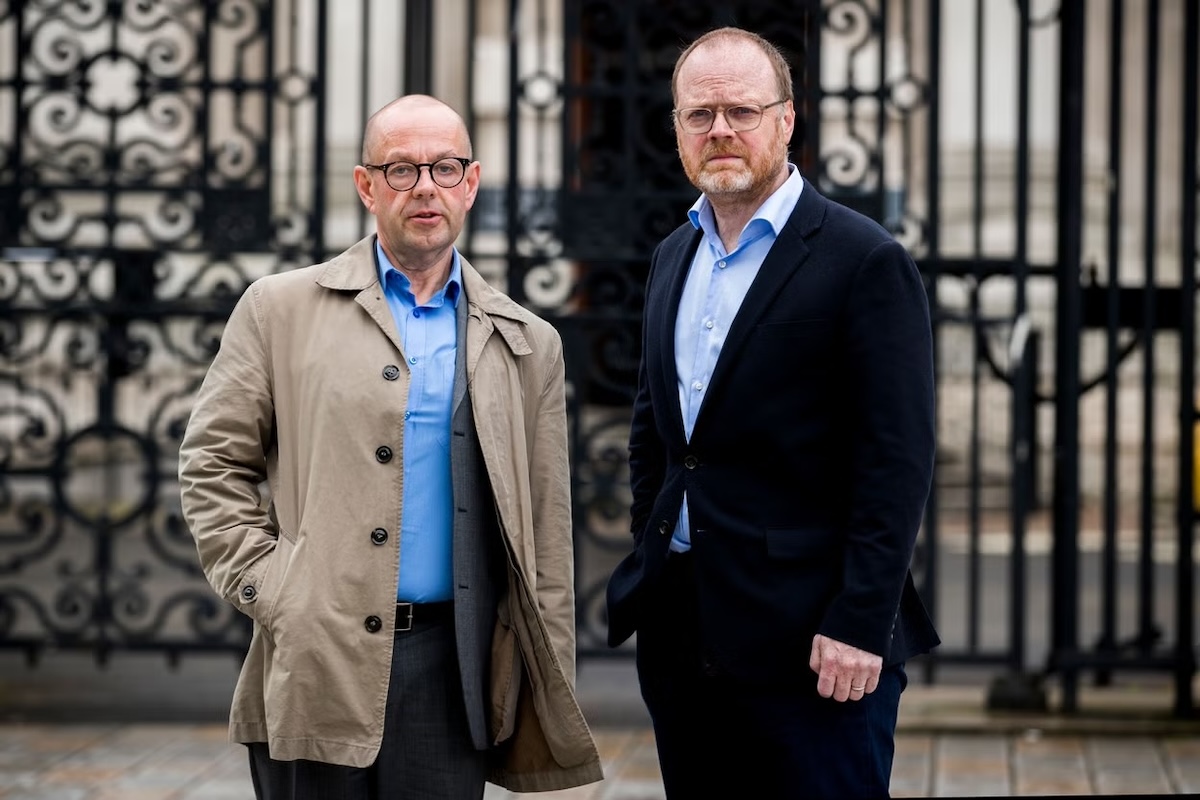
The PSNI will have to produce a new report into its surveillance of journalists and lawyers after the first one was rejected as “utterly vague” by members of the Policing Board.
Up to ten spying incidents on journalists and a similar number on lawyers was admitted to in the report, which was presented to members of the Policing Board last week, six months after it was first requested.
The report was requested by the Policing Board last year after it emerged that two journalists – Barry McCaffrey and Trevor Birney – had been placed under surveillance over a documentary exposing collusion in the Loughinisland massacre.
Some details of the surveillance operation emerged after Mr McCaffrey and Mr Birney made a complaint over their arrest in connection with an acclaimed 2017 documentary about the UVF sectarian murder of six men at the Heights Bar in Loughinisland, County Down, in June 1994.
It emerged the arrest of the journalists in 2018 was a “disruptive” tactic to see if they contacted their source on release from PSNI custody.
The PSNI later unreservedly apologised for how the men had been treated and agreed to pay £875,000 in damages to them and the film company.
Alliance board member, North Belfast MLA Nuala McAllister, said of the first repport: “There was a lot of information that was just utterly vague at times.”
She added that the report did “not provide assurances to the Policing Board nor the public regarding the legality of the actions that did take place”.
Sinn Féin board member, North Belfast MLA Gerry Kelly, said that the report did not meet PSNI commitments to openness and transparency.
“I think we are now looking at another report to update the one we had, because I don’t think it gave us or the public the assurance,” he said.
“The public want to know has the law been broken by the PSNI? That’s the crux of the issue.”
PSNI chief Constable Jon Boutcher, who said it was “a starting position” has now been forced into the production of a second report, which will be made public.
Human rights groups Amnesty international and Committee on the Administration of Justice have voiced concerns about the surveillance operation.
Patrick Corrigan, Amnesty International’s director in the north, said a “free press and an independent legal system are cornerstones of any democracy”.
“It’s chilling that the police have apparently been conducting covert and intrusive surveillance on lawyers as well as journalists in Northern Ireland,” he said.
“We already knew about three incidents of police surveillance of journalists, but this new information seems to confirm our fears that these incidents are part of a wider pattern of the police abusing their powers on secret surveillance.
“We continue to call on the Policing Board to hold an inquiry into potentially unlawful use of covert surveillance. It’s time for full transparency, scrutiny and accountability.”
Daniel Holder, CAJ director, said “police spying on lawyers and journalists is often associated with undemocratic regimes – it requires compelling justification”.
“Revelations of police spying on lawyers raises questions as to whether there has been interference in the administration of justice,” he said.
“The proper functioning of the legal system is reliant on confidentiality of legal communications between lawyers and clients.”
![[Irish Republican News]](https://republican-news.org/graphics/title_gifs/rn.gif)
![[Irish Republican News]](https://republican-news.org/graphics/title_gifs/harp.gif)

